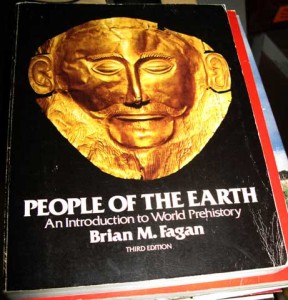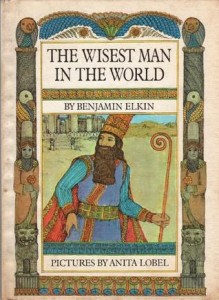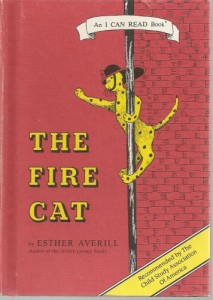 The instinct to collect books has always been strong for many of us. To those who understand, the knee-high to be read pile is a sign of devotion to the written word. That moment when a side trip leads to shelves or boxes of books waiting to be claimed and loved or purchased and given to eager readers elsewhere is a basic life pleasure for many. The advent of the internet and with it the availability of free digital books through such sites as Project Gutenberg and the University of Virginia Online Library further enabled book lovers by offering a low to no cost way to gather up the books that would plug holes in their first-hand knowledge of arts and letters.
The instinct to collect books has always been strong for many of us. To those who understand, the knee-high to be read pile is a sign of devotion to the written word. That moment when a side trip leads to shelves or boxes of books waiting to be claimed and loved or purchased and given to eager readers elsewhere is a basic life pleasure for many. The advent of the internet and with it the availability of free digital books through such sites as Project Gutenberg and the University of Virginia Online Library further enabled book lovers by offering a low to no cost way to gather up the books that would plug holes in their first-hand knowledge of arts and letters.
Think it was easy to hoard, er, collect paper books when they were cheap and easy to find in so many places? Imagine the possibilities if they were in a format that was magically invisible until called up. In the interest of disclosure, I should admit that I put so many on the laptop I was using at the time that I had to have a rent-a-geek guy unpack it so it would boot up. My friends were smarter. They burned hundreds of compressed books on discs or loaded them up on high capacity external drives. For a while, there seemed to be a balance between the urge to collect hard copies and the easy-come easy-go of finally reading a free digital copy of Persuasion.
That was all so 90s’. Now that we’re in the 10s’, the spectre of disappearing paper editions and the advent of the cheaper e-reader cum tablet may very well mirror the painful breakup music and movie lovers experienced when the big companies started listing separate drop dates for each format for a while and then eventually none at all for older prerecorded media. At the risk of playing Captain Obvious, there’s no way this doesn’t have an effect on collectors and bibliophiles.
 Having been fairly draconian when the culling urge has hit in the past, I have to admit that I now think a little harder before dropping a book into a bag headed for a UBS run. In truth, I can count on the fingers of one hand the number of times I’ve felt donator’s/seller’s remorse and still have enough fingers left over to a be bad example for impressionable children. Deleting a book from my LibraryThing account never brought so much as a twinge. Most of the books that get bagged during a cull for the UBS or Book Crossing still leave with well wishes to the next reader and little fanfare. Still, there are the few volumes that are sufficiently out of the mainstream and still hold some interest for me, even if it is as an artifact of my past. Some of those remain: the Marguerite Henry books my father bought for me during that difficult year his job left us stuck in a town with little tolerance for religious or philosophical diversity; my first books by Brian Fagan and Carl Sagan, two scientists who couldn’t have kept their enthusiasm and appreciation for the beauty of their subjects out of their writing if they tried; the colourful, multi-culti early reader books my parents gave me before I started kindergarten, my folklore and anthropology books from school and of course more hockey books than any adult should own. Even with the continual turnover in my personal library, these books are still here.
Having been fairly draconian when the culling urge has hit in the past, I have to admit that I now think a little harder before dropping a book into a bag headed for a UBS run. In truth, I can count on the fingers of one hand the number of times I’ve felt donator’s/seller’s remorse and still have enough fingers left over to a be bad example for impressionable children. Deleting a book from my LibraryThing account never brought so much as a twinge. Most of the books that get bagged during a cull for the UBS or Book Crossing still leave with well wishes to the next reader and little fanfare. Still, there are the few volumes that are sufficiently out of the mainstream and still hold some interest for me, even if it is as an artifact of my past. Some of those remain: the Marguerite Henry books my father bought for me during that difficult year his job left us stuck in a town with little tolerance for religious or philosophical diversity; my first books by Brian Fagan and Carl Sagan, two scientists who couldn’t have kept their enthusiasm and appreciation for the beauty of their subjects out of their writing if they tried; the colourful, multi-culti early reader books my parents gave me before I started kindergarten, my folklore and anthropology books from school and of course more hockey books than any adult should own. Even with the continual turnover in my personal library, these books are still here.
 A couple of years ago, while gathering books for the Samaritan Center, I found a copy of “The Firecat” in a UBS free bin. This had been my brother’s favourite book when he was little. No matter how many offers to read Danny and the Dinosaur or one of the Little Bear books, he insisted that nothing but a rendition of Pickles the Firecat would do. When my brother and his wife were in from Oregon, I gave it to him.
A couple of years ago, while gathering books for the Samaritan Center, I found a copy of “The Firecat” in a UBS free bin. This had been my brother’s favourite book when he was little. No matter how many offers to read Danny and the Dinosaur or one of the Little Bear books, he insisted that nothing but a rendition of Pickles the Firecat would do. When my brother and his wife were in from Oregon, I gave it to him.
My mother tried to wave it away. “He won’t want that,” she said.
Actually he did. My brother, who was forty at the time, smiled when he saw it, hugged it and then proceeded to read Pickles to his wife and grown son, who, having been raised by The Fairly Odd Family, listened with the sweet spirit of indulging one’s elders.
I wonder if the eventual disappearance of paper books will leave a hole in the lives of coming generations or, as some sociologists suggest, the internet is going to create a new form of continued and familiar narrative motif that combines the orality of previous traditions with the textual forms that nearly supplanted folk transmissions. What will replace the moment one finds a beloved familiar book from childhood or one that offered emotional and intellectual sustenance at some point and feel that odd rush of something that is more than nostalgia and a little less than meeting up with a beloved teacher and friend? Frankly, I’m interested in seeing what comes next.

E-book is very popular today, but someone like me love reading real book. Cause it’s reality.
This constantly amazes me just how blog owners such as your
self can find the time as well as the dedication to keep on crafting superb blog
posts. Your website is good and one of my personal must read weblogs. I just
had to thank you.
That’s books are very interesting thanks for shearing…
Hello,
Relay very amazing book thank you for this publish and shear 😉